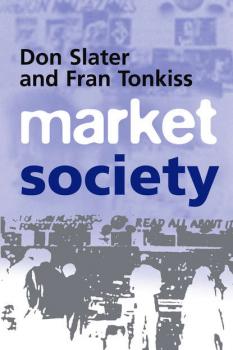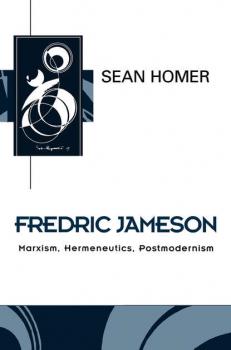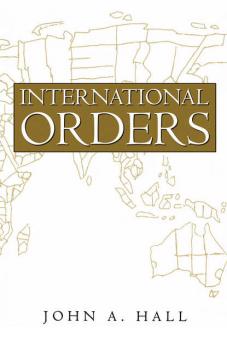MREADZ.COM - много разных книг на любой вкус
Скачивание или чтение онлайн электронных книг.Cosmopolitan Europe
Europe is Europe’s last remaining realistic political utopia. But Europe remains to be understood and conceptualized. This historically unique form of international community cannot be explained in terms of the traditional concepts of politics and the state, which remain trapped in the straightjacket of methodological nationalism. Thus, if we are to understand cosmopolitan Europe, we must radically rethink the conventional categories of social and political analysis. Just as the Peace of Westphalia brought the religious civil wars of the seventeenth century to an end through the separation of church and state, so too the separation of state and nation represents the appropriate response to the horrors of the twentieth century. And just as the secular state makes the exercise of different religions possible, so too cosmopolitan Europe must guarantee the coexistence of different ethnic, religious and political forms of life across national borders based on the principle of cosmopolitan tolerance. The task the authors have set themselves in this book is nothing less than to rethink Europe as an idea and a reality. It represents an attempt to understand the process of Europeanization in light of the theory of reflexive modernization and thereby to redefine it at both the theoretical and the political level. This book completes Ulrich Beck’s trilogy on ‘cosmopolitan realism’, the volumes of which complement each other and can be read independently. It is essential reading for anyone interested in the key social and political developments of our time.
Cosmopolitan Vision
In this new book, Ulrich Beck develops his now widely used concepts of second modernity, risk society and reflexive sociology into a radical new sociological analysis of the cosmopolitan implications of globalization. Beck draws extensively on empirical and theoretical analyses of such phenomena as migration, war and terror, as well as a range of literary and historical works, to weave a rich discursive web in which analytical, critical and methodological themes intertwine effortlessly. Contrasting a ‘cosmopolitan vision’ or ‘outlook’ sharpened by awareness of the transformative and transgressive impacts of globalization with the ‘national outlook’ neurotically fixated on the familiar reference points of a world of nations-states-borders, sovereignty, exclusive identities-Beck shows how even opponents of globalization and cosmopolitanism are trapped by the logic of reflexive modernization into promoting the very processes they are opposing. A persistent theme running through the book is the attempt to recover an authentically European tradition of cosmopolitan openness to otherness and tolerance of difference. What Europe needs, Beck argues, is the courage to unite forms of life which have grown out of language, skin colour, nationality or religion with awareness that, in a radically insecure world, all are equal and everyone is different.
Zygmunt Bauman
In this major new assessment of Zygmunt Bauman's work, Smith gives a clear introduction to this controversial and challenging sociologist.
Durkheim Reconsidered
Durkheim is one of the founding fathers of modern sociology and a key figure in the development of social theory. And yet today his work is often misunderstood, since it is commonly viewed through the lens of later authors who used his writings to illustrate certain tendencies in social thought. Durkheim Reconsidered challenges the common views of Durkheim and offers a fresh and much-needed reappraisal of his ideas. Stedman Jones dismantles the interpretations of Durkheim that remain widespread in Anglo-American sociology and then examines afresh his major works, placing them in their historical and political context. She emphasizes Durkheim's debt to the socialist and republican thought of his contemporaries – and especially to Renouvier who, she argues, had a profound influence on Durkheim's approach. This book will be recognised as a major reinterpretation of the work of one of the most important figures in the history of sociology and social thought. It will be of great interest to scholars and students in sociology, anthropology and related disciplines.
Charles Taylor
The Canadian philosopher Charles Taylor is a key figure in contemporary debates about the self and the problems of modernity. This book provides a comprehensive, critical account of Taylor's work. It succinctly reconstructs the ambitious philosophical project that unifies Taylor's diverse writings. And it examines in detail Taylor's specific claims about the structure of the human sciences; the link between identity, language, and moral values; democracy and multiculturalism; and the conflict between secular and non-secular spirituality. The book also includes the first sustained account of Taylor's career as a social critic and political activist. Clearly written and authoritative, this book will be welcomed by students and researchers in a wide range of disciplines, including philosophy, psychology, politics, sociology, anthropology, cultural studies and theology.
Market Society
Market Society provides an original and accessible review of changing conceptions of the market in modern social thought. The book considers markets as social institutions rather than simply formal models, arguing that modern ideas of the market are based on critical notions of social order, social action and social relations. Examining a range of perspectives on the market from across different social science disciplines, Market Society surveys a complex field of ideas in a clear and comprehensive manner. In this way it seeks to extend economic sociology beyond a critique of mainstream economics, and to engage more broadly with social, political and cultural theory. The book explores historical approaches to the emergence of a modern market society, as well as major approaches to the market within modern economic theory and sociology. It addresses key arguments in economic sociology and anthropology, the relation between markets and states, and critical and cultural theories of market rationality. It concludes with a discussion of markets and culture in a late modern context. This wide-ranging text will be of interest to undergraduate and postgraduate students in sociology, economic theory and history, politics, social and political theory, anthropology and cultural studies.
Fredric Jameson
This is the first comprehensive analysis of the work of Fredric Jameson, one of the most important cultural critics writing today. Homer provides a clear exposition and appraisal of Jameson's theories and an assessment of his contribution to contemporary cultural theory.
Hannah Arendt
The new study provides a fresh and timely reassessment of the political philosophy of Hannah Arendt. While analysing the central themes of Arendt's work, Phillip Hansen also shows that her work makes a significant contribution to contemporary debates. Specifically, Hansen argues that Arendt provides a powerful account of what it means to think and act politically. This account can establish the grounds for a contemporary citizen rationality in the face of threat to a genuine politics. Amoung other issues, Hansen discusses Arendt's conception of history and historical action; her account of politics and of the distinction between public and private; her analysis of totalitarianism as the most ominous form of 'false ' politics; and her treatment of revolution. The book is a balanced and opportune reappraisal of Arendt's contributions to social and political theory. It will be welcomed by students and scholars in politics, sociology and philosophy.
International Orders
This book examines the different ways in which order has been achieved in world affairs with a view to understanding current political dilemmas and opportunities. International Ordersbegins by distinguishing between world order and international order in the spirit of Hedley Bull. This leads to an analysis of five different principles of international order – the principles of the balance of power, the concert of great powers, liberal regimes, interdependence, and the exercise of hegemony. However, principles of international order are rarely simply clear cut in their operations, they intermingle with the perceptions of human agents and the plans of political leaders who have sought to structure the world polity to serve particular aims. The core of this volume comprises a detailed historical sociology of how international order was achieved at three crucial phases in the history of the states system. Theories and evidence are deployed to examine: the emergence of the European states system; the development of the European state from Westphalia to the rise of Nazism; and the emergence and impact of the Cold War. Throughout, the theories of world order are examined, tested and, in the light of evidence, improved. In conclusion, considerable attention is given to the forces of integration and disintegration which might strengthen or undermine world order in the future, and an argument is offered concerning the ethical grounds on which intervention in the affairs of another state might be justified.
Professionalism Reborn
This book is an original interpretation of the professions and the role of the professional in Western industrial societies today.









